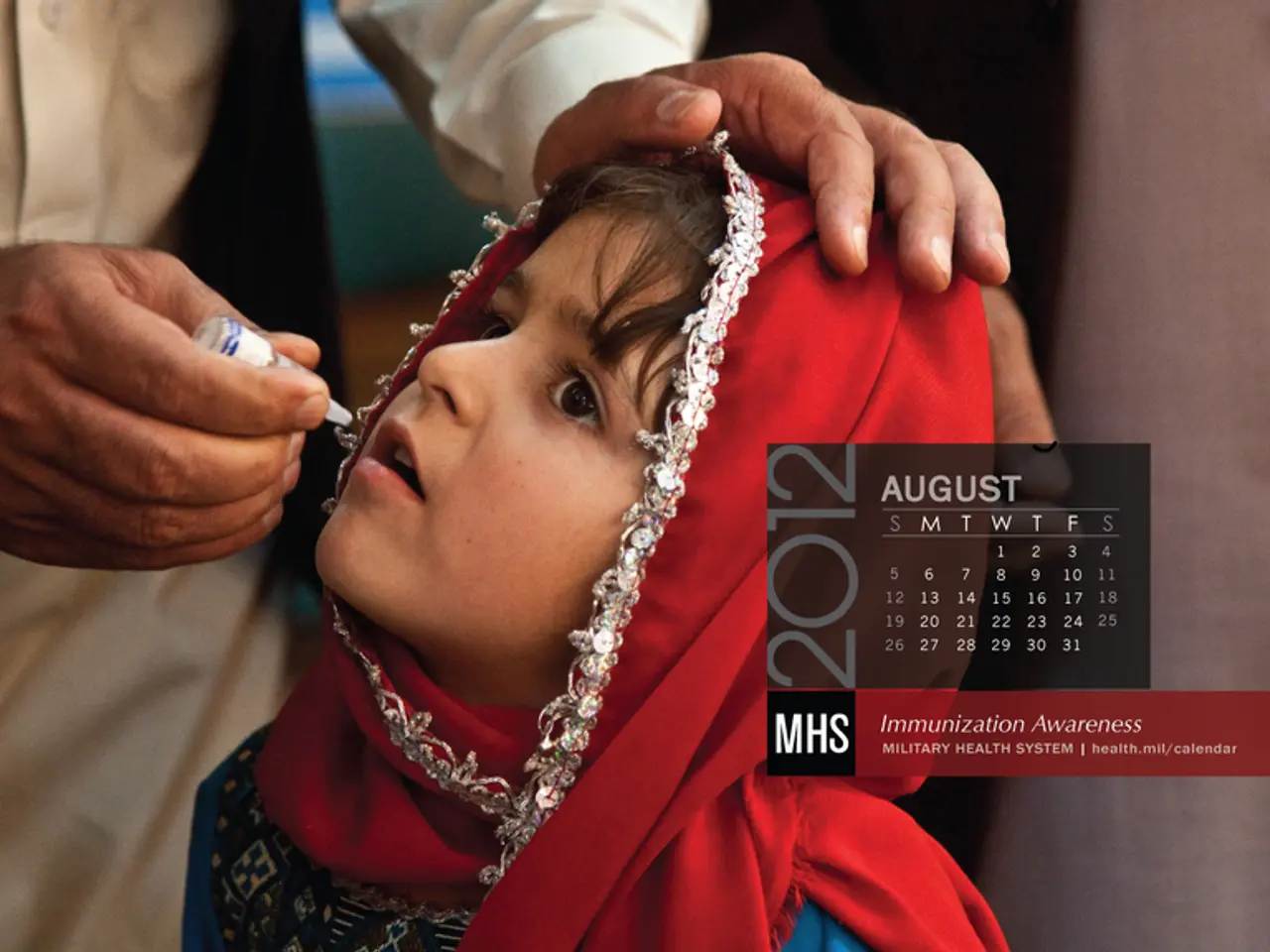Vaccination Guideline for Infants' First Year in Nigeria
Protecting Nigerian Babies: The First Year Vaccination Schedule
In the first year of a baby's life, vaccinations play a crucial role in safeguarding them from a wide range of potentially life-threatening diseases. The vaccination schedule in Nigeria, aligned with the Ministry of Health and supported by partners like Gavi, WHO, and UNICEF, is designed to reduce childhood infectious disease mortality.
Newborns are protected from tuberculosis with the BCG vaccine, and receive the Hepatitis B and Oral Polio Vaccine (OPV) at birth.
At six weeks, infants receive the pentavalent vaccine, which guards against diphtheria, tetanus, pertussis, hepatitis B, and Haemophilus influenzae type b (Hib). At this same appointment, the rotavirus vaccine is administered to prevent severe diarrhea and dehydration.
Ten weeks later, the baby receives the pneumococcal conjugate vaccine (PCV), OPV, and another dose of the rotavirus vaccine.
At nine months, the measles vaccine (MCV1) is administered to provide immunity against measles, a highly contagious viral disease that can cause severe complications. The baby also receives the Yellow Fever vaccine at this appointment.
A newly introduced malaria vaccine is given in a 4-dose schedule starting from about 5 months of age, with doses at 5, 6, 7 months, and a booster dose at 15 months or later if delayed.
Parents should ensure that their babies receive these vaccinations on time to ensure optimal protection. Proper precautions should be taken before vaccinating a baby, such as informing the healthcare provider about any allergies or previous adverse reactions.
These vaccines are provided free of charge in government hospitals and health centers across Nigeria. Parents are advised to follow the nationally recommended schedule, which can be tracked and supported via health systems and digital tools.
Bringing someone for support to the vaccination appointment can be comforting for both the parent and the baby. Parents should be prepared for potential side effects of each vaccine, and consult a reliable healthcare provider who specializes in pediatrics and has experience with vaccinations.
By adhering to the vaccination schedule, parents can rest assured that they are taking the necessary steps to protect their babies from harmful diseases and provide them with the best possible start in life.
[1] Nigeria's National Immunization Schedule
[2] WHO Immunization, Vaccines and Biologicals
[3] UNICEF Nigeria
[4] Gavi, the Vaccine Alliance
[5] Digital Immunization Programme (DIP) Nigeria
- To ensure the health and wellness of their kids and family, parents in Nigeria are encouraged to follow the National Immunization Schedule, supported by organizations such as UNICEF Nigeria and Gavi, the Vaccine Alliance.
- The first year vaccination schedule in Nigeria includes vaccines for diseases like tuberculosis, Hepatitis B, and measles, which are administered at specific time intervals to provide optimal protection for children.
- Partners like WHO Immunization, Vaccines and Biologicals support the implementation of this schedule, ensuring that vaccines are provided free of charge in government hospitals and health centers across Nigeria.
- To maintain the safety and efficacy of the vaccines, parents should inform healthcare providers about any allergies or previous adverse reactions before vaccinating their babies.
- Digital Immunization Programme (DIP) Nigeria offers tools to help parents track their children's vaccination record and ensure they are on schedule, promoting the education and discipline of proper parenting regarding health-and-wellness matters.




